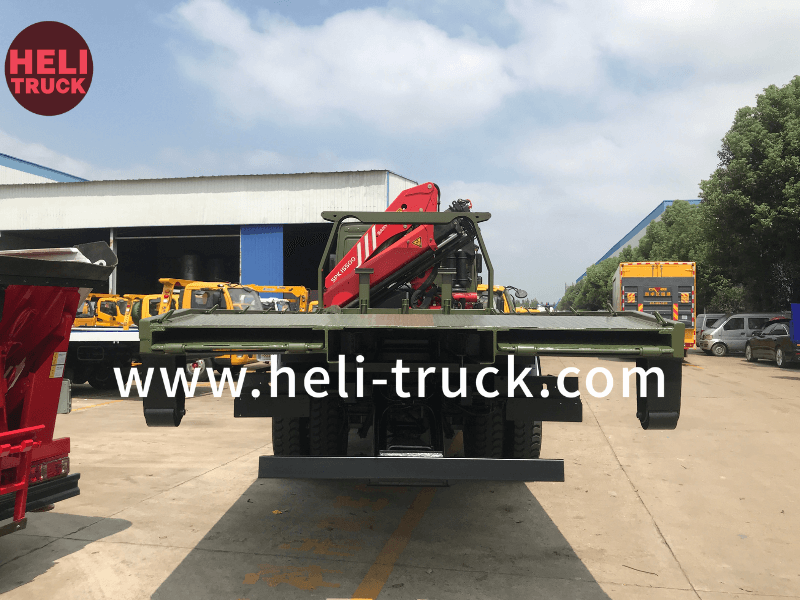Introduction
Waste management is a critical aspect of modern society, as the ever-increasing amount of waste generated poses significant environmental and health risks. Vacuum trucks have emerged as a versatile and efficient solution for waste containment and disposal across various industries. These specialized vehicles are equipped with powerful vacuum systems that can effectively extract, transport, and dispose of a wide range of liquid, sludge, and solid waste materials. In this article, we will delve into the world of vacuum truck waste containment, exploring the technology behind these vehicles, their applications, benefits, and best practices for optimal waste management.
Understanding Vacuum Trucks
Vacuum trucks, also known as vacuum tankers or vacuum tank trucks, are specialized vehicles designed to handle the collection and transportation of various types of waste materials. Water tank truck water infrastructure development to the operation of vacuum trucks is their vacuum system, which creates suction to extract liquids, sludge, and solids from a wide range of sources. These sources can include septic tanks, industrial facilities, construction sites, and municipal sewage systems, among others.
The vacuum system of a typical vacuum truck consists of a powerful vacuum pump, a series of hoses and pipes, and a storage tank for collecting the extracted waste. The vacuum pump generates suction by creating a pressure differential between the inside of the tank and the external environment. This suction force allows the truck to effectively extract waste materials from their source and transport them to a designated disposal site.
Applications of Vacuum Trucks
Vacuum trucks find a wide range of applications across various industries and sectors due to their versatility and efficiency in handling different types of waste materials. Some common applications of vacuum trucks include:
1. Septic Tank Cleaning: Vacuum trucks are commonly used for emptying and cleaning septic tanks in residential, commercial, and industrial settings. The powerful suction capabilities of these vehicles allow them to remove sludge, scum, and other waste materials from septic systems, helping to maintain their proper functioning and prevent environmental contamination.
2. Industrial Waste Management: In industrial settings, vacuum trucks are used to extract and transport various types of liquid and solid waste materials, including chemicals, oils, and hazardous substances. These vehicles play a crucial role in ensuring safe and compliant disposal of industrial waste, helping to protect the environment and public health.
3. Municipal Sewer Cleaning: Vacuum trucks are essential for maintaining and cleaning municipal sewer systems, storm drains, and culverts. By removing debris, sediment, and other obstructions from these infrastructure components, vacuum trucks help prevent blockages, backups, and flooding during heavy rainfall events.
4. Emergency Spill Response: Vacuum trucks are often deployed for emergency spill response situations, such as chemical spills, fuel leaks, and hazardous material incidents. These vehicles can quickly contain and remove spilled materials, minimizing the environmental impact and mitigating risks to public health and safety.
Benefits of Vacuum Truck Waste Containment
The use of vacuum trucks for waste containment offers a multitude of benefits, both from an environmental and operational standpoint. Some key advantages of vacuum truck waste containment include:
1. Efficient Waste Extraction: Vacuum trucks are highly efficient in extracting waste materials from various sources, thanks to their powerful vacuum systems. This efficiency translates into faster cleanup times, reduced labor costs, and improved overall productivity.
2. Versatile Handling Capabilities: Vacuum trucks are capable of handling a wide range of waste materials, including liquids, sludge, and solids. This versatility makes them well-suited for diverse applications across different industries and sectors.
3. Environmental Protection: By containing and transporting waste materials in a sealed tank, vacuum trucks help prevent spills, leaks, and contamination of the surrounding environment. This proactive approach to waste management contributes to environmental protection and conservation efforts.

4. Regulatory Compliance: Vacuum trucks are equipped with features and systems that ensure compliance with regulatory requirements for waste disposal. By adhering to established guidelines and standards, users of vacuum trucks can avoid fines, penalties, and legal liabilities associated with improper waste management practices.
5. Cost-Effective Solution: Vacuum trucks offer a cost-effective solution for waste containment and disposal, especially when compared to manual methods or traditional waste management techniques. The efficiency and speed of vacuum truck operations can result in significant cost savings for businesses and municipalities.
Best Practices for Vacuum Truck Waste Management
To maximize the effectiveness and safety of vacuum truck waste containment, it is important to follow best practices and guidelines for proper operation and maintenance. Some recommended best practices for vacuum truck waste management include:
1. Regular Maintenance: Ensure that the vacuum truck is properly maintained and serviced according to the manufacturer's recommendations. Regular maintenance checks can help prevent breakdowns, prolong the lifespan of the vehicle, and maintain optimal performance.
2. Operator Training: Provide comprehensive training to operators on the safe and efficient use of vacuum trucks. Operators should be familiar with the equipment, operating procedures, and safety protocols to minimize risks and ensure smooth operations.
3. Proper Disposal: Dispose of waste materials in compliance with local, state, and federal regulations. Identify approved disposal sites and facilities for different types of waste materials and follow proper disposal procedures to prevent environmental harm.
4. Safety Precautions: Implement safety measures to protect operators, bystanders, and the environment during vacuum truck operations. This includes wearing appropriate personal protective equipment, securing the work area, and following established safety protocols.
5. Record Keeping: Maintain accurate records of waste collection, transportation, and disposal activities conducted using vacuum trucks. This documentation can be useful for regulatory compliance, quality assurance, and liability management purposes.
Conclusion
Vacuum trucks play a vital role in waste containment and disposal efforts across a wide range of industries and sectors. These specialized vehicles offer efficient, versatile, and environmentally friendly solutions for handling liquid, sludge, and solid waste materials. By understanding the technology behind vacuum trucks, their applications, benefits, and best practices for optimal waste management, organizations and municipalities can make informed decisions to enhance their waste management practices and contribute to a cleaner and safer environment for all.
